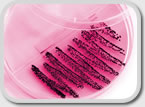TDA Labs - Large Animal Diagnostics
Pregnancies may now be detected at TDA Labs through blood or milk samples. A sample is collected at the farm and submitted to the lab. Turnaround time is one day or a rush can be requested for additional cost.
Summary of Pregnancy Detection Tests at TDA Labs:
BioPRYN - requires blood, 73 days post calving and 28 days post breeding
IDEXX Blood - requires blood, 60 days post calving and 28 days post breeding
IDEXX Milk - requires milk, 60 days post calving and 35 days post breeding
Pregnancy Diagnosis with Blood
BioPRYN is a ruminant-specific pregnancy test developed by Dr. Garth Sasser at the University of Idaho. The test specifically looks for the level of pregnancy-specific protein B (PSPB) in the serum. The ELISA reader calculates the optical density of the individual sample and compares this value with known controls including both open and pregnant cows. Based on this comparison, the results are reported as open, pregnant, or recheck. These reports can be transferred electronically into on-farm software if the client so chooses. The BioPRYN test requires an overnight incubation period and results are reported approximately 24 hours after the test is first set up.
Animal Selection and Sample Handling- BioPRYN
Cows that were previously pregnant must be at least 73 days postpartum in order for any residual PSPB to be gone. Cows also need to be a minimum of 28 days post insemination. Virgin heifers should be at least 28 days post breeding in order to get an accurate test result. This test only tells you if the cow is pregnant or open. Gestation cannot be staged by this particular assay. Blood should be collected in a clot tube and stored refrigerated until submission for testing. It is not critical that samples be refrigerated for shipment, but it is a good idea to have them refrigerated prior to shipment. PSPB is quite stable and there seem to be no unwanted effects of serum sitting on the clot. Samples should be shipped for receiving in 1-2 days.
The IDEXX blood/milk pregnancy test developed recently by IDEXX specifically looks for pregnancy-associated glycoproteins (PAGs) in serum. The ELISA reader calculates the optical density of the individual cow and compares this value with known controls including both open and pregnant cows. Based on this comparison, the results are reported as open, pregnant or recheck. These reports can be transferred electronically into on-farm software if the client so chooses. The IDEXX test requires 4-6 hours to complete and results are reported approximately 24 hours after the test is first set up.
Animal Selection and Sample Handling - IDEXX
Cows that were previously pregnant must be at least 60 days postpartum in order for any residual PSPB to be gone. Cows also need to be a minimum of 28 days post insemination for blood and at least 35 days post insemination for the milk test. This test only tells you if the cow is pregnant or open. Gestation cannot be staged by this particular assay. Blood should be collected in a clot tube and stored refrigerated until submission for testing. It is not critical that samples be refrigerated for shipment, but it is a good idea to have them refrigerated prior to shipment. PAGs are quite stable and there seem to be no unwanted effects of serum sitting on the clot. Samples should be shipped for receiving in 1-2 days.
Concerning Milk Samples
Just about any milk can be collected for pregnancy detection. Milk from DHIA samples may be used, as well as fresh or frozen milk samples and samples collected by hand before or after milking. Samples cannot be sour or mastitic.

TDA Labs has done side by side comparison testing between the BioPRYN tests and IDEXX tests, and rectal palpation by experienced DVM palpators. The results of the tests have been very comparable with palpation and in most cases are 1-2% better than palpation results. The lab tests have worked extremely well in virgin heifers and are becoming a preferred means of pregnancy diagnosis for AI bred heifers. In dairy herds, the tests can provide the opportunity for more frequent (weekly) checks in some herds where it is difficult for a palpator to get there at the same frequency. This allows for more rapid diagnosis of open cows and an opportunity for earlier re-enrollment into synchronization programs. In addition, the non-invasive nature of the test reduces the chances of embryo damage during early gestational palpation. We would be glad to discuss this test in greater detail with anyone interested in finding out more about it.
For more information in regards to sheep, goat, bison, and deer testing, please contact the lab at info@TDALabs.com.
To learn more about delivering samples to the lab, visit the Samples page.
Questions may also be submitted through our online contact form.